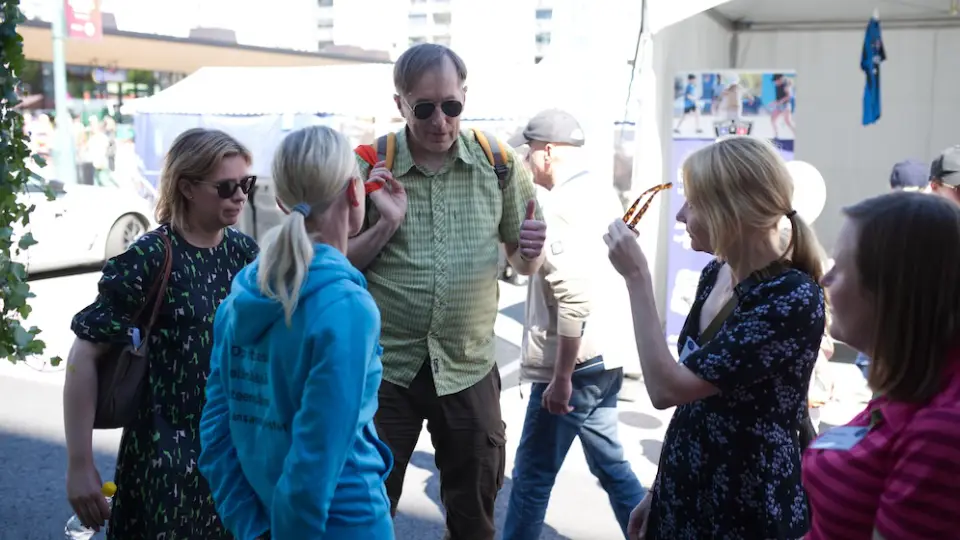PIAAC is a complex survey being conducted in 33 countries. The main purpose of the FT is to test the technical infrastructure, the background questionnaire and the cognitive items. It also gives all participating countries experience with the data collection, processing and delivering data. Data collected during the FT will now be analysed and evaluated in order to start planning the conduction of the main study. Thus, errors that occurred will be corrected and cognitive items not performing as expected will be removed before the main study.
Information about how the FT was conducted in the Nordic-Baltic countries
The Nordic and Baltic countries differ with regard to when the FT was conducted and how many completed interviews were achieved during the data collection. The table below gives information on the period of data collection, the sample size, as well as the number of completed background questionnaires and assessments in the Nordic-Baltic countries:
| Country | Data collection period | Sample size | Number of persons contacted | Completed background questionnaires | Completed cognitive assessments |
|---|---|---|---|---|---|
| Denmark | 8/5-22/8 2021 | 2902 | 2762 | 782 | 762 |
| Estonia | 12/6 –30/9 2021 | 3200 + reserve sample 481 | 3681 | 1551 | 1542 |
| Finland | 3/5-31/8/2021 | 2850 (representative sample) + 796 (quota sample) |
1030 (234 representative sample + 796 quota sample) | 816 (20 representative sample + 796 quota sample) | 796 (19 representative sample + 777 quota sample) |
| Norway | 21/06-12/09/2021 | 4100 + reserve sample 2050 | 3773 | 1201 | 1183 |
| Sweden | 17/5 – 24/9 2021 | 5000 | 4694 | 1105 | 1047 |
The number of collected background questionnaires varies between the countries, and ranges from 1551 in Estonia to 782 in Denmark. In all countries, the number of completed cognitive assessments is a bit lower, as some respondents did not complete the assessment.
Originally, it was planned to do the FT in the spring and summer of 2020, but due to the Covid-19 pandemic, the FT had to be postponed with one year. In 2021, the Nordic and Baltic countries were still affected by restrictions due to the pandemic. Interviews are conducted face to face, and before the start of the data collection, all countries organized trainings to prepare the interviewers for the data collection. Interviews were carried out with a focus on infection control, hygiene measures and with distance between the interviewer and the respondent. Some people did not want to participate because of the pandemic, even though Covid-19 was not the main reason for non-response.
In addition to testing the data collection and the instruments, countries were able to conduct experiments during the FT to learn more about how incentives affect the response rate. In Sweden, the sample was divided into three groups and the three groups were offered different amounts of money to participate in the survey. Group 1 was offered 99 Swedish kroner (SEK), group 2 500 SEK and the last group was offered 900 SEK. Results show that the response rate rose the higher the amount of money offered. While in group 1, 16% completed the background questionnaire, 24% of those in the group receiving 500 SEK and 30% of those in the group receiving 900 SEK completed the questionnaire. The low response rates are due to the fact that the data collection was done during the summer season and it was not possible to conduct extensive non-response follow ups, which will be done during the main study. The results from the experiment in Sweden also show that the group receiving 900 SEK had significantly higher response rate than the group receiving 99 SEK within population groups for example by gender and educational attainment.
Main Study to be conducted in 2022/2023
The main study will be conducted from September 2022 to March 2023. Every country will collect around 5000 interviews and first international results from PIAAC will be available in 2024.
Timeline
The timeline is shown here
Platform and instrument development
Preparation of Field Trial Materials and Procedures
Field Trial
Field Trial Analysis
Preparation of Main Study Materials and Procedures
Main Study Data Collection
Main Study Analysis and Report Preparation
Data Products and Databases.
Final Report Released





